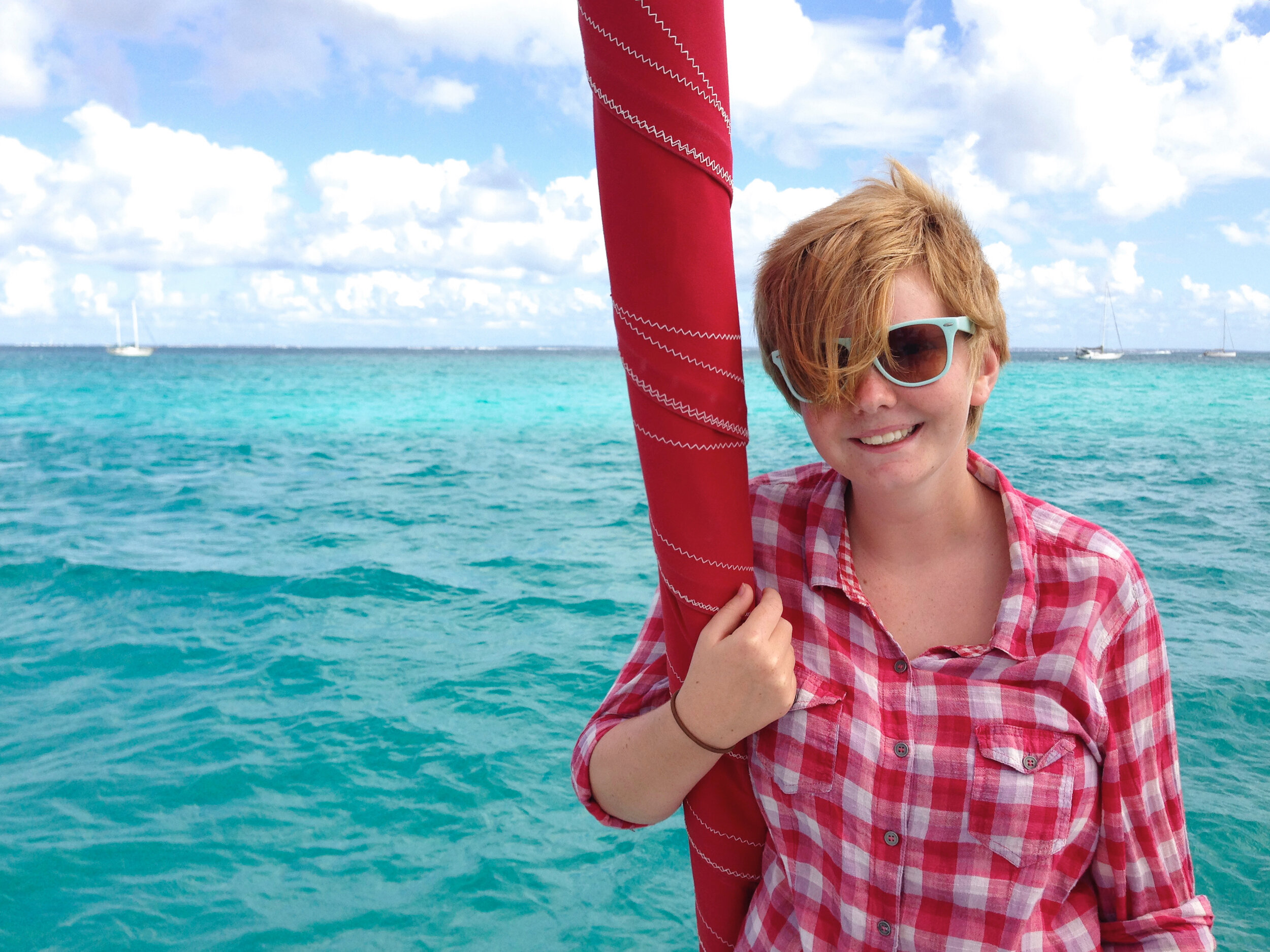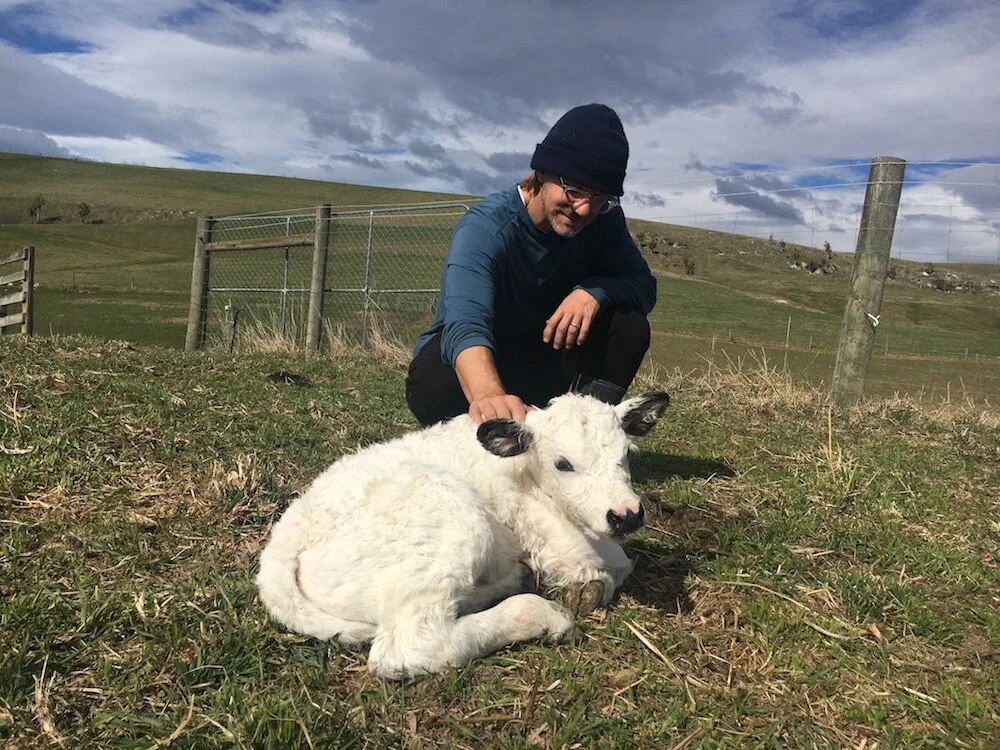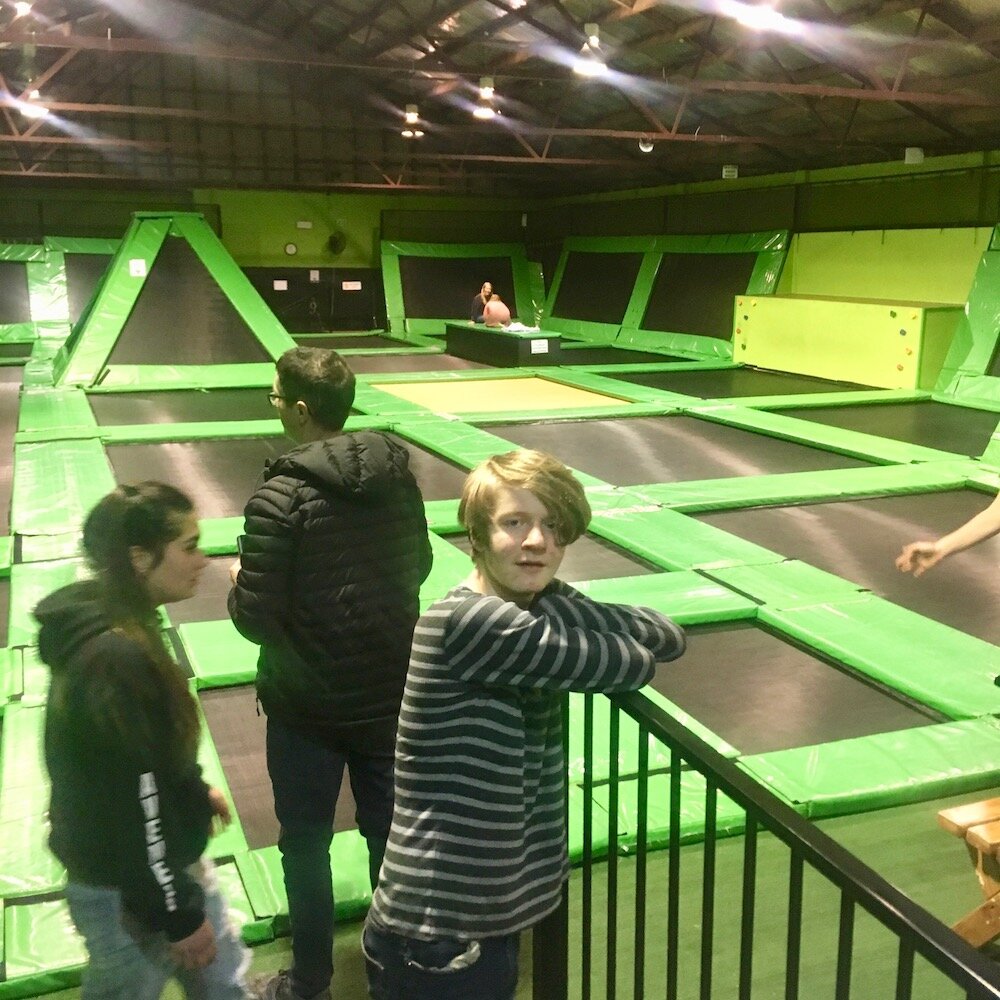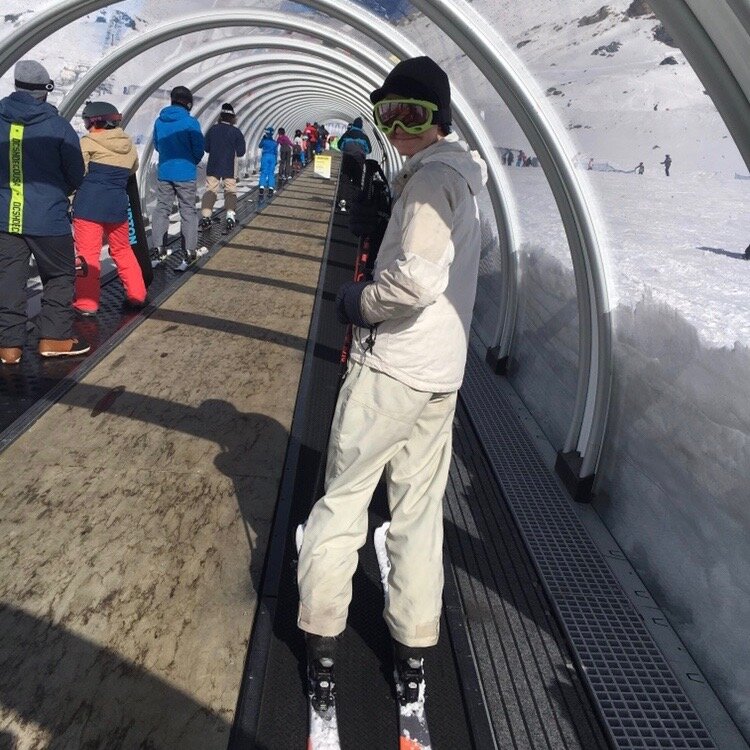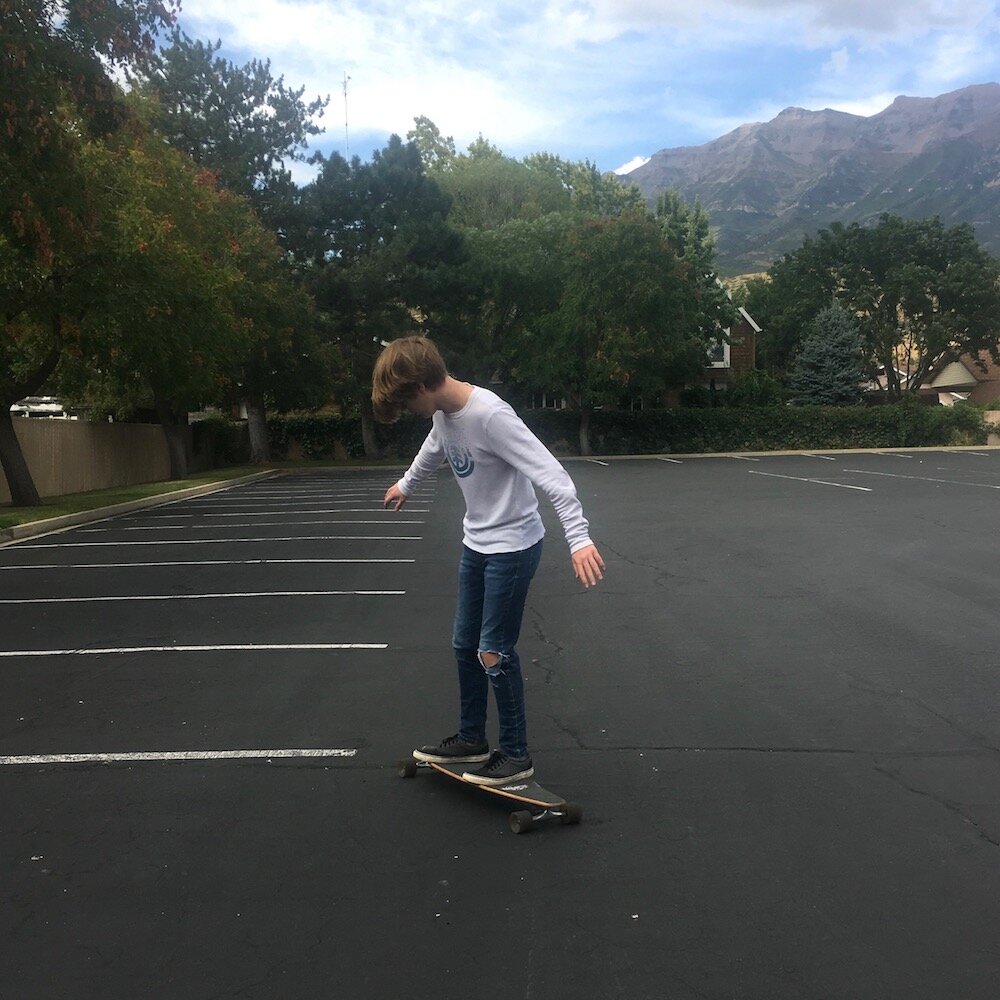Life, Death and Technology on a Farm
/by EMILY ORTON
First calf born on our watch
We found a cow lying in the mud. She couldn’t move. We couldn’t move her. Erik and I weren’t qualified to assess the situation. We’d only been cowhands for a week. This was our third farm sit in New Zealand (basically housesitting on a farm) and our first time caring for cows. The owner was in a charity horse race across the Gobi dessert in southern Mongolia. She was off-grid for at least 10 days. We needed back up.
Earlier in the week Erik discovered two baby goats, dead. We knew what to do. Every farm has an offal—it sounds appropriately like “awful.” It’s a big pit on top of a hill for disposing of decomposing animal flesh. Rainwater recently filled the offal but we could still see a year-old cow carcass half floating on top. We gently scooped the small goats into a giant dog food bag and put it in the offal.
Fortunately, Neville, our next-door-neighbor was a professional farmer. Our written instructions advised consulting with Neville on any concerns outside our experience. We showed him a video of the downed cow and hoped he would recommend some way we could revive her.
He bluntly dashed our hopes, “She’s too far gone.” The cow needed to be shot.
A very patient cow
It was early spring in the southern hemisphere and four calves were born that same week. Farm sitting gave us a front row seat to cycles of life and death. A couple of months earlier, Erik and I learned to catch, kill, and butcher wild chickens in Maui. It taught us great respect for our food. This suffering cow was a whole different matter.
“We don’t have a gun,” Erik said.
“I don’t have a gun either,” Neville said. “I saw an ad in The Courier for an abattoir. I’ll put it in your mailbox on my way into town.”
I’d never heard of an abattoir. Neville said the abattoir would shoot the cow and haul it away. Erik and I wondered what that would cost, who would pay for it and what the owner would think? We gave the cow some feed and water and hoped she would pep up…despite Neville’s prediction.
The next day we got the advertisement for the abattoir. It meant slaughterhouse. They didn’t charge for their services. Sometimes they paid. They used the meat to make dog food. It was a business I’d never considered but it was important in farm country.
We rode the ATV to the tallest hill—the only place where we had cell reception— called the abattoir and set an appointment.
“How would you feel about asking Eli to watch?” I asked Erik.
“You mean when the abattoir comes to shoot the cow?”
A week earlier, I would not have considered that a good idea. I still wasn’t totally sure.
I had started a subscription to Family Tech University—a series of online courses that prepare kids and teens to use the Internet wisely—like Driver’s Ed. for screens. They curate the most pertinent articles, podcasts, and videos explaining the latest research on kids and screen use. They package it into easily digestible modules that facilitate family conversations. Everything about the program is positive, encouraging, and respects our ability to make good decisions.
Eli completed a module where he considered the question—What is real? This is when I realized that Family Tech University, while based in current research, is also founded on Christian principles as taught in The Church of Jesus Christ of Latter-day Saints. That works for me. If that’s not for you, I’ve included a great secular resource later.
After Eli read some excerpts from a speech about the importance of experiencing things in real life and the value of the whole body—not just the mind—as an instrument for learning, we had a conversation.
On this farm, Eli drove an ATV for the first time. He loved it. Ordinarily, I would have merely considered it a cool experience. Because of the Family Tech University module, it became a teaching moment. We discussed how different actually driving was from playing Mario Kart.
The ATV was Eli’s favorite part of farm life
Eli also plays Fortnite and Cuphead—both games where he shoots other characters. There is nothing realistic about either of these games. There is more disappearing than death. I’m not condoning these games. I’m not sure how I feel about them. It’s an ongoing conversation in our family.
I hoped this rare opportunity to witness the inevitable death of a suffering cow could have a clarifying impact on our son. I didn’t want to scar him or scare him. I wanted him to see this truth about life and death. I wanted him to see that shooting is real. It isn’t a joke and it isn’t funny.
Erik agreed that it could be helpful. Parenting is a gamble. Every choice is made with the best intentions but the consequences are outside of our control. Together, we explained our reasoning to Eli and Lily and invited them to join us. They accepted.
The abattoir’s truck couldn’t get up the muddy hill so we hiked to the cow. Unmoving, she followed us with her giant brown eyes. The kids and I said a brief prayer. I patted the cow’s forehead then stood back as the abattoir approached with his rifle.
“Does your boy want to shoot it?” he asked. I looked at Erik. We looked at Eli. Eli took one step backward and waved off the opportunity with both hands.
“Okay.” Pop. Slash. The cow was shot between the eyes and his throat was slit. It was fast, quiet, and shockingly mundane. The abattoir didn’t get any benefit from this cow. We thanked him for coming and watched as a very real, very red pool of blood formed under the cow’s head.
This is a common reality for rural families all over the world but a rare experience for an urban or suburban kid. It certainly wasn’t suggested by Family Tech University, but prompted by our discussion about what is real and what is fake. Now, we’ve had half a dozen conversations about the difference between this real experience and the games Eli plays.
One thing I like about Family Tech University’s approach is I know my child has already listened to, watched, or read thought-provoking content and made comments. Those comments are emailed to me along with questions to move our family dialogue forward. What we decide to do about what we learn is up to us.
When it comes to screens—filters, restrictions and controls do have their place. Ultimately, each kid will be his or her own final filter. It’s helpful if they’re prepared to choose what serves them and what doesn’t. I anticipate more meaningful conversations with my kids about what role they want technology to play in their lives.
In the time we’ve subscribed to Family Tech University, Eli has chosen to have his Internet browser restricted to only allow specific websites. He has spent less time on his Nintendo Switch. He’s playing more in real life—jumping off the high dive and rock climbing at the local rec center (uncharacteristic for him). He’s shooting hoops, jumping on the trampoline, riding a bike, and he even skateboarded for the first time.
Neville came by later with his tractor to move the carcass to the offal. Two more calves were born that week. Eli caught one birth on video. Watch to see his response. That’s real
Film credit: Eli Orton
Family Tech University gave us a free subscription in exchange for an honest review.
If you’re interested, use code EMILY15 for $15 off at familytechuniversity.com
If you’re looking for parenting tech tips without a faith component, try Tech Talk Tuesdays free weekly email. I am a subscriber.
Selfie with Simba—the third calf born on our watch
